- Jan. 11. Assignment 1. The Paragraph. Write two paragraphs on what history is. Due Jan. 18.
- Jan. 13. Moll Flanders, the preface. Assigned article from The History Debate, ed. Juliet Gardiner (London, 1990)
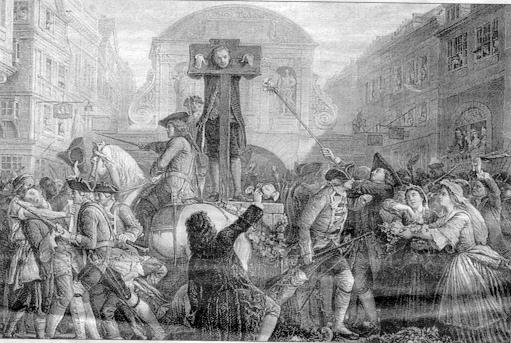
His 2500 Spring 2000
EIU, Dr. Newton Key, 11:00TR
Texts:
Objectives:
Ground rules:
The roots of the word history reach back through Anglo-Saxon to the ancient Greek term histor, which means `a wise an learned person,' and even further back to the Sanskrit word for knowledge. In modern English, history is the cousin of story. The study of history therefore is the gathering of human wisdom through stories. The content of history is an evolving mosaic of the human experience. For the history student, this accumulation of stories translates into a lot of reading. -David Pace and Sharon L. Pugh, Studying for History (New York, 1996), 86
Writing history is about making decisions. Historians choose from a broad range of subjects, selecting those they think are most important. They choose source materials carefully, assessing evidence that may support or contradict their arguments. And they choose ways to write, balancing respect for their subjects with the needs of their audience. -William Keller Storey, Writing History: A Guide for Students (Oxford, 1999), 1
Schedule of Classes and Assignments: Reading should be completed before the class assigned; Assignment due dates are given below and on assignment sheet handouts (available at http://ux1.eiu.edu/~nekey/syllabi/research.htm):
week 1. Introduction. "Professor Trevor-Roper tells us that the historian `ought to love the past.' This is a dubious injunction. To love the past may easily be an expression of the nostalgic romanticism of old men of old societies, a symptom of loss of faith and interest in the present or future." [Edward Hallett Carr, What Is History? (New York, 1961), 29]
|
 |
week 2. Revising Prose. "Emphasize nouns and verbs in writing. This means both selecting them with care, and making them bear the burden of the sentence. Adjectives and adverbs, thus, should be used sparingly. It is obvious that much gooey writing is due to overuse of adjectives." [Robert Jones Shafer, ed., A Guide to Historical Method, 3rd ed. (Homewood, Ill., 1980), 211]
|
 |
week 3. Words in Context. "Words may have different meanings at different times in history.... Especially when you are dealing with primary sources, it is essential that you know what a word meant at a particular time.... Turn to a dictionary of historical principles, which traces changes in forms and meanings of a word through time. The greatest of these is the Oxford English Dictionary, commonly called the OED. The first edition, originally issued in ten volumes from 1888 to 1928, took fifty-four years to produce, and almost half of its 15,487 pages were written by Sir James Murray, in consultation with thousands of English-language experts around the world." [The latest edition is now available in print and online, including Eastern Illinois's LAN and, thus, at Booth Library.] [Neil R. Stout, Getting the Most out of Your U.S. History Course: the History Student's Vade Mecum, 3rd ed. (Lexington, Mass., 1996), 30-1]
week 4. Reference Works. "When you go to the library, begin your research in reference books, not in the card catalog." [Robert Skapura and John Marlowe, History: A Student's Guide to Research and Writing (Englewood, Colo., 1988), 6]
week 5. The Historian and the Thesis. "Learn to spot the thesis.... Pay particular attention the first paragraph of each chapter or subheading, because it should contain the thesis. A thesis is a proposition whose validity the author demonstrates by presenting evidence.... (Newspapers call this a 'lead.')" [Stout, Getting the Most out of Your U.S. History Course, 5]
|
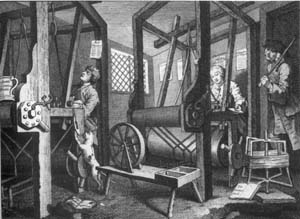 from Black, An Illustrated History
of Eighteenth-Century
Britain,
35 (Mid-18th century machines were still dependent on human energy. Note
the broadside song or poem of Moll Flanders hung upon the idle apprentice's
loom.) from Black, An Illustrated History
of Eighteenth-Century
Britain,
35 (Mid-18th century machines were still dependent on human energy. Note
the broadside song or poem of Moll Flanders hung upon the idle apprentice's
loom.) |
week 6. Types of Historians. "Study the historian before you begin to study the facts." [Carr, What Is History?, 26]
|
Moll Flanders (text) (zip) |
week 7. Constructing a Problem. "Technique begins with learning how to use the catalogue of a library. Whatever the system, it is only an expanded form of the alphabetical order of an encyclopedia. A ready knowledge of the order of letters in the alphabet is therefore fundamental to all research.
"But it must be supplemented by alertness and imagination, for subjects frequently go by different names. For example, coin collecting is called Numismatics. More complicated is the way in which one who wants information about the theory of the divine right of kings arrives at the term 'Monarchy.' One might conceivably have reached the same result by looking up 'Right, divine,' or even possibly `Divine Right,' if the library owns a book by that title or is fully cross-indexed. What is certain is that there is little chance of success if one looks up `King' and no hope at all if one looks up `Theory.' In other words, one must from the very beginning play with the subject, take it apart and view it from various sides in order to seize on its outward connections." [Jacques Barzun and Henry F. Graff, The Modern Researcher, 5th ed. (Fort Worth, 1992)]
|
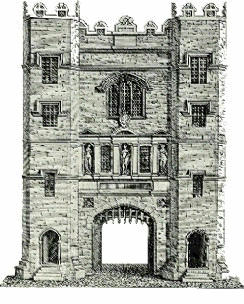 |
week 8. The Document. "What makes a historian master of his craft is the discipline of checking findings, to see whether he has said more than his source warrants. A historian with a turn of phrase, when released from this discipline, risks acquiring a dangerously Icarian freedom to make statements which are unscholarly because unverifiable." Conrad Russell, cited in Mark A. Kishlansky, "Saye No More," Journal of British Studies 30 (Oct. 1991): 399.
|
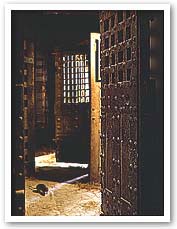 |
week 9. The Newspaper or Serial Source. "[H]istory is to a considerable extent a matter of numbers. Carlyle was responsible for the unfortunate assertion that `history is the biography of great men.' But listen to him at his most eloquent and in his greatest historical work:
Hunger and nakedness and righteous oppression lying heavy on 25 million hearts: this, not the wounded vanities or contradicted philosophies of philosophical advocates, rich shopkeepers, rural noblesse, was the prime mover in the French revolution; as the like will be in all such revolutions, in all countries." [Thomas Carlyle, French Revolution, cited in Carr, What Is History?, 61]
|
 |
week 10. The Edited Collection. "History cannot be written unless the historian can achieve some kind of contact with the mind of those about whom he is writing." [Carr, What Is History?, 27]
|
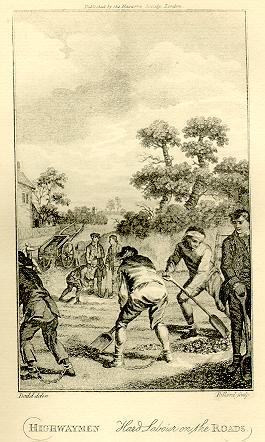 |
week 11. Developing a Treatment. "Hollywood producers, with millions of dollars at stake, require writers to produce `treatments' of proposed movie plots. These short sketches of the film plot enable both the writer and potential producer to see the story in a nutshell. In the same way, you can test the potential of history paper topic by writing a one-paragraph treatment." [Pace and Pugh, Studying for History, 181]
|
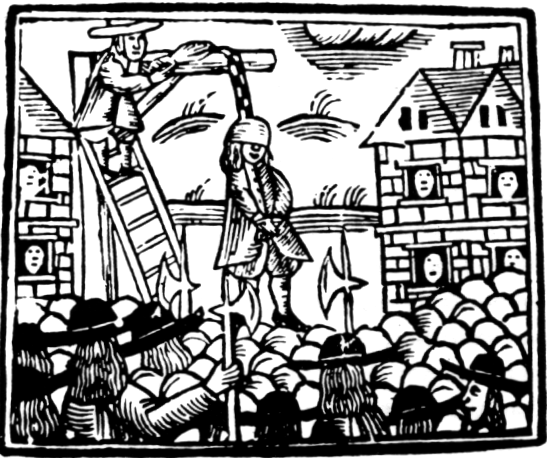 |
week 12. Research and writing. "For myself, as soon as I have got going on a few of what I take to be the capital sources, the itch becomes too strong and I begin to write--not necessarily at the beginning, but somewhere, anywhere." [Carr, What Is History?, 33]
week 13. Writing and Noting. "Footnotes exist ...to perform two ...functions. First, they persuade: they convince the reader that the historian has done an acceptable amount of work, enough to lie within the tolerances of the field.... Second, they indicate the chief sources that the historian has actually used. Though footnotes usually do not explain the precise course that the historian's interpretation of these texts has taken, they often give the reader who is both critical and open-minded enough hints to make it possible to work this out--in part. No apparatus can give more information--or more assurance--than this." [Anthony Grafton, The Footnote: A Curious History (Cambridge, Mass., 1997), 22-3]
|
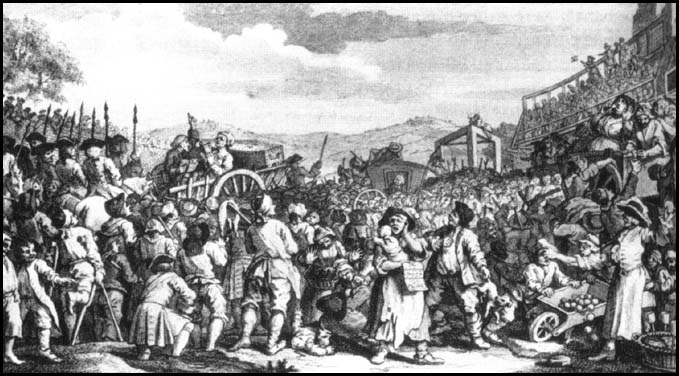 |
week 14. Revising. A Checklist for Revising:
|
An example of an article written for this course is
"Cloth, Clothing,
and Cloth-theft in Defoe's
England"
|
week 15. Everyman His Own Historian. "There are battalions of good reasons for continuing to study history, but not even those battalions can or should hide the fact that history is one of the most arduous, complex and simply difficult intellectual enterprises invented by man." [G.R. Elton, in The History Debate, ed. Juliet Gardiner (London, 1990), 12]
|